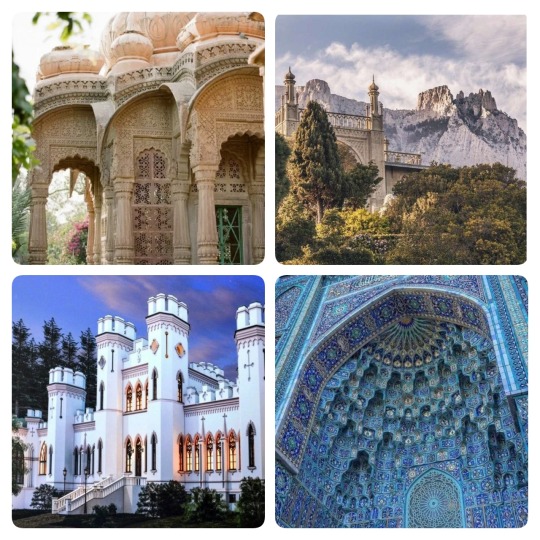#unity in diversity
Text

583
#unidad en la diversidad#original photography on tumblr#original photographers#travel#original photographs#unity in diversity#unity#original photography#travel photography#costa rica#monteverde#santa elena#cityphotography#streetart#streetphoto#street art#street photography#street#art#urban#city photography#cityscape#unidad#streetphotography#photography#photo#urban art#pura vida
11 notes
·
View notes
Text
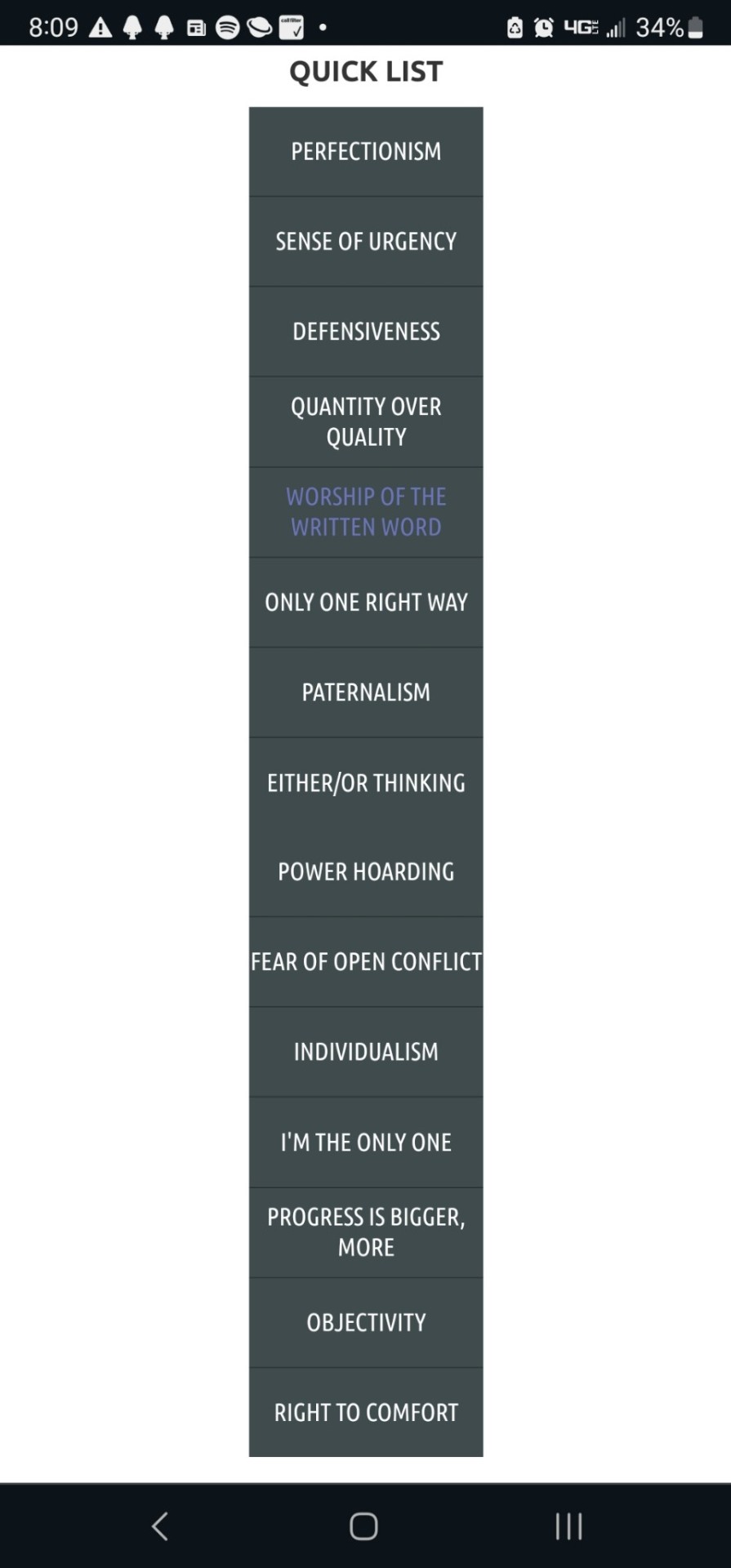
Note: all problems are intrinsically connected to this, and it's twin is the patriarchy. You really don't encounter one without the other.
Environment. Violence. Human rights. Discrimination and hate. It all...boils down to this. So if you care about x heavily and I care about y heavily, i still care about x too...because it is intrinsically connected.
Our causes do not divide us. Our causes unite us. Help eachother where we can.
#deconstruct#decolonize#your mind#mental framing#thoughts#ways of thinking#patriarchy#its all connected#resistance#resist#livingmybestlife#coffee#capitalism#wellness#nerd#people#humanity#human rights#love#self love#set yourself free#connection#mutual aid#white supremacy#right wing extremism#blue maga#unity#unity in diversity
4 notes
·
View notes
Text
RESPECT
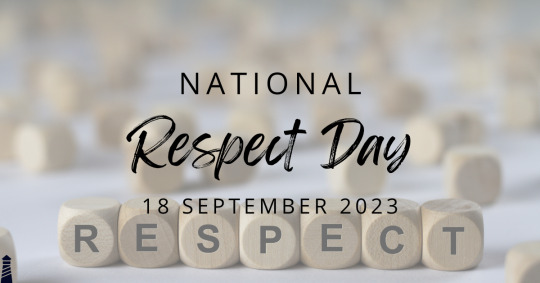
On September 18th, let's come together to honor a value that transcends borders and unites us all: RESPECT. These seven letters carry the weight of a principle we strive to receive and share, shaping our interactions and enriching our lives. National Respect Day reminds us of the importance of treating every individual with admiration, kindness, and consideration. Let's join hands to foster a world where respect thrives!
🙏 History of National Respect Day 🙏
From childhood, we've been taught to honor our parents, elders, and the rules that guide us. As adults, we've come to understand the deeper significance of respect—how it strengthens bonds, bridges differences, and cultivates a sense of unity. Beyond external respect, we've also learned the journey of self-respect—a path filled with growth, challenges, and unwavering self-worth.
Respect's influence stretches far beyond our daily lives. It sparks discussions about justice, equality, and cultural diversity. It plays a crucial role in ethical debates, with its roots traced back to the pioneering philosopher Immanuel Kant. His belief in the inherent dignity of every person laid the foundation for modern humanism. Today, we continue to draw inspiration from his ideas, striving to uphold the principle of respect in our actions and choices.
🌍 Our Role in a Respecting World 🌍
In a world where respect sometimes seems rare, each of us holds the power to make a difference. Let's pause to reflect on how we can contribute to a more respectful society. By showing kindness, empathy, and consideration to all, we create a ripple effect that influences those around us. As National Respect Day coincides with other special occasions like National Cheeseburger Day, World Bamboo Day, and International Red Panda Day, let's celebrate in a way that embodies respect for all living beings and our planet. This September 18th, let's pledge to be the change-makers, the respect-givers, and the advocates for a world where mutual understanding and consideration flourish. Join us in spreading the message of respect far and wide. Together, we can create a brighter, more respectful future for generations to come. 🌎❤️
7 notes
·
View notes
Text
Embracing the Divine in Misinterpretation
A Journey Beyond Surface UnderstandingIn the realm of spiritual exploration, the concept of misinterpretation often carries a negative connotation, seen as a divergence from the true essence of divine wisdom. However, if we delve deeper, we might discover that these so-called misinterpretations are not merely deviations but integral elements of the divine expression itself.Consider the myriad…
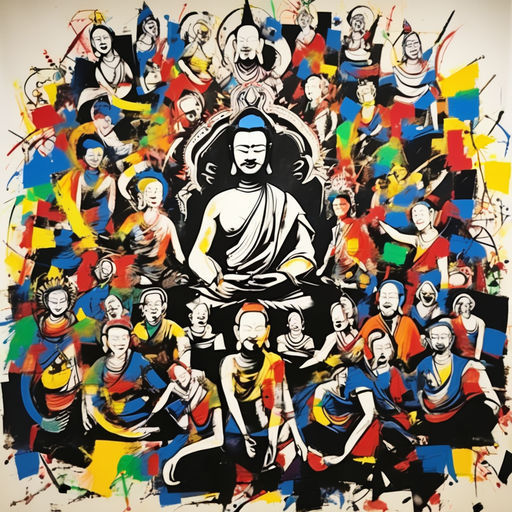
View On WordPress
#Divine Misinterpretation#Eastern Philosophy#enlightenment journey#Infinite Expressions#nonduality#Spiritual Diversity#Spiritual Growth#Unity in Diversity
2 notes
·
View notes
Text

#religions#families of spirituality#monotheism#One God#unity#friendship#unity in diversity#finding respect and peace#family#love your next person as you love yourself#heritage#acknowledgements#respect#do not badmouth your cousins#be generous with each other#do not cheat or harm each other
1 note
·
View note
Text
“Unity in Diversity: An Interfaith Guide to Peacebuilding in Conflict Zones” book is now available on Amazon
by Embassy Row Project
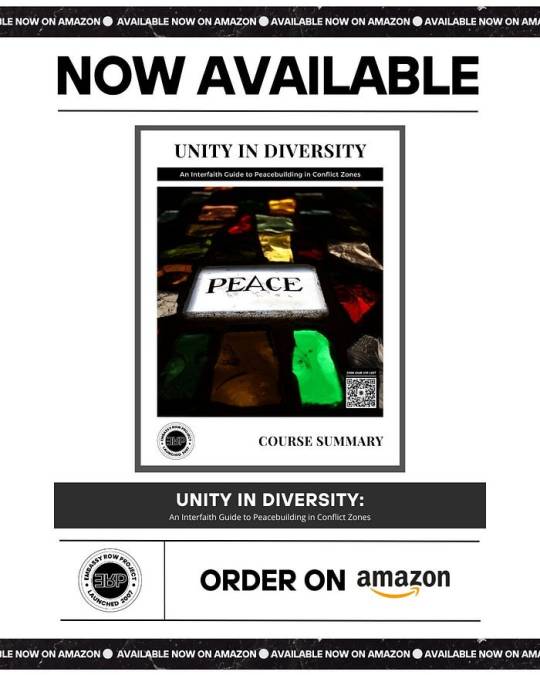
In an era where conflicts continue to splinter communities across the globe, peacebuilding stands as a beacon of hope. “Unity in Diversity: An Interfaith Guide to Peacebuilding in Conflict Zones” by Embassy Row Project founder James Scott offers an unprecedented and meticulously crafted roadmap for those striving to sew unity among diversity. Authored by leading experts in interfaith collaboration, this guide appeals to peacebuilders, religious leaders, policymakers, and anyone passionate about healing our fractured world. Dive into compelling chapters that provide actionable insights into the complex and rewarding world of interfaith peacebuilding.
Here’s What You’ll Learn:
-The Importance of Collaboration: Understand why interfaith collaboration is essential in modern peacebuilding efforts.
Conflict Perspectives: Gain historical and contemporary insights into conflict and its complex origins.
-Peacebuilding Essentials: Master the core concepts and principles that form the backbone of peacebuilding.
-Faith and Conflict Analysis: Explore the intricate relationship between faith and conflict and how it shapes our world.
-Communication and Conversation: Learn how to foster communication and dissolve divides between different faith traditions.
-Shared Values & Trust Building: Recognize the unifying threads and foster trust among diverse faith communities.
-Actionable Frameworks & Leaders’ Role: Discover how religious leaders can act as catalysts for peace and design effective programs.
-Educational Initiatives & Community Engagement: Engage in peace education and grassroots efforts in your community.
-Institutional Change & Healing: Learn how to influence policy and undertake spiritual healing and reconciliation processes.
-Monitoring, Challenges, & Future Prospects: Ensure your initiatives’ effectiveness and overcome challenges in the ever-evolving field of interfaith peacebuilding.
“Unity in Diversity” is not just a book; it’s a call to action, a plea for understanding, and a guide to the profound path of healing that our world so desperately needs. Whether you are a seasoned peacebuilder, a curious academic, or a passionate advocate for unity, this book will equip you with the wisdom, tools, and inspiration needed to make a tangible difference. Join hands with others across faith traditions and embark on a transformative journey towards a more peaceful and inclusive world. Read this book, and be the change you wish to see. Your copy of “Unity in Diversity” awaits. Get ready to change the world.
— — — — — — — — — — — — — — — — — — — — — — — — — — — — — — — — — — — — —
Grab the Book on Amazon Now!
Kindle: https://www.amazon.com/dp/B0CFCQ79M8
Paperback: https://www.amazon.com/dp/B0CFCWVY6D
#ERP#Embassy Row Project#Interfaith Peacebuilding#Healing Our World#Collaborative Peace#Faith And Harmony#Global Unity#Peaceful Coexistence#Bridging Divides#Change Through Understanding#Unity In Diversity#Nonprofit for dummies 2020#Grant writing cassidy#The only grant writing book#Grant writing for dummies 2020#Grant writing for dummies 2021#Grant writing quick study#Grant writing law enforcement#Nonprofit budgets for dummies#Nonprofit books#Starting a nonprofit#Nonprofit grant writing#Starting a nonprofit organization#How to start a nonprofit#How to start nonprofit organization
2 notes
·
View notes
Text
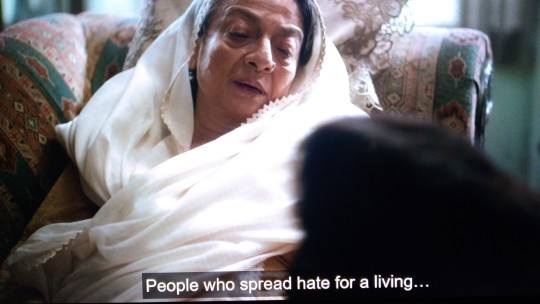
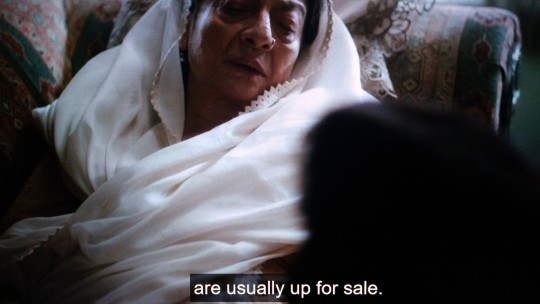
31 notes
·
View notes
Text
Accepting Differences
Aruna Roy once said “You can never evaluate anything standing from the outside, you have to evaluate yourself first.” This quote tells us a lot about how we are very superficial about matters of importance going on all around India. Matters that really concern us as a citizen but no one really seems to take action upon. Everyone seems to assume their own perceptions about matters concerning gender, castes and ethnicity. These matters are talked upon and are spoken about in a lot of places but no one has really tried to understand what they mean. Humans at every stage of their life are compared with each other and are judged from different point of views. Men are told to be manly and told to not cry like a woman. Women are told to cover up and act in a certain manner.
Why do we differentiate between man and woman and why don’t we treat them equally? Why men are told to be stronger than woman? Why woman are told to take the blame upon themselves? These are the questions that ponder me sometimes as I look in the newspaper or on a news channel. I’m pretty sure a lot of you would have the same thoughts as well. No matter how much we develop and how much of progress we achieve, if what is there on the inside can’t be changed then we have not moved a step ahead at all. Gender biases can be overcome by making people aware of their own biases and try to recognize how these views are affecting their lives. By breaking the gender stereotypes that is to allow all members of society the freedom to choose the roles most suited to them. By analysis to find gender balance. The only way we will create meaningful change is to create systems designed to eliminate bias.
Another important topic of discussion is caste biases. India is a secular country. It is known to have vivid cultures and beautiful traditions. But there are a lot of people who still believe in the age old caste system and treat people the way they want. They believe the hierarchical system of grouping of individuals, the Hindus are divide into Brahmins, Kshatriyas, Vaishyas and the Shudras. Brahmins are the priests or teachers, Kshatriyas are warriors and rulers, Vaishyas are framers, traders and merchants and lastly Shudras are laborers and are untouchables. This system was followed long before we knew anything about the world. The Brahmins were superiors and the Shudras were outcasts.
All human beings are born free and equal in dignity and rights (Article 1 of the Universal Declaration of Human Rights from 1948). But 260 million worldwide continue to suffer from caste discrimination. In India the body of legislation meant to protect Dalit’s and improve their situation is extensive. But political will to ensure implementation is lacking and discrimination from village level up to government level continues unabated. Caste discrimination and the human rights violations that inevitably follow can only be avoided if decision makers at all levels decide to take action. Dr. Ambedkar, “Turn in any direction you like, caste is the monster that crosses your path. You cannot have political reform, you cannot have economic reform, unless you kill this monster.” We all can be free from this monster if we stop looking at people according to their castes and treat them equally as human beings. Our nation would be merrier if we ignored the differences and understood humanity.
Ethnicity is a group of people who identify with each other, usually on the basis of presumed similarities such as a common language, ancestry, history, society, culture and nation. India has more than two thousand ethnic groups. As a kid in school we have always been taught that there is “Unity in diversity." We all have different religions, believes and we live in different states of the country India, but all of us are together Indians as a whole. We celebrate Independence Day every year on the 15th of August and feel proud to be an Indian. But there are sometimes we start fighting on the basis of religions and cultures. The most recent one has been the construction of Ram Mandir in Ayodhya. For about 300 years Hindus and Muslims have been fighting over the authority of the piece of land in Ayodhya. Very recently the construction of the temple has been finalized.
We as citizens of India can take a step forward to put aside our differences and look at each other with equal value, only then can we achieve to be the greatest. Though Britishers are long gone but the prejudices that prevail inside of us are making us fall far behind the time.
~Hrishita Nayak
10 notes
·
View notes
Text
Why I don't agree with the typical religious/atheist person
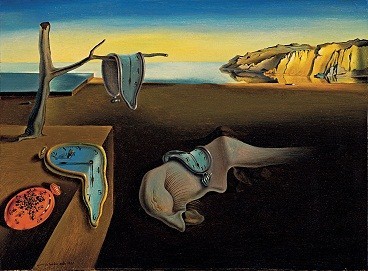
I spent more than 10 years of my life trying to be that good kid. As I'm from a Muslim family, I started to pray at the age of 12, and I did it because I wanted to find the meaning of life, and my parents never forced me to do it. I had la vie en rose.
Growing up, I started to read more about religion and atheism. I got lost in a hell of ideas, and both sides made sense to me. On one side, atheists try to destroy Islam by putting their whole efforts, digging into history to the point that some of them may lie. On the other side, Muslims gave quite good arguments against the opposite side, but they may call the other side 'kafir'. To be honest, the insults were from both sides, and I hated it. Each side was blinded by the pride of belongingness to their community and couldn't understand the perspective of the other side or put themselves in their situation. Pride was a barrier in front of the truth.
The thing is that no one can prove or disprove the existence of God. It's a question of belief; it's a personal choice. Islam is also a question of belief; you don't have to prove it. All you can do is believe or not, and each side has the right to present their ideas and doesn't have the right to hurt or offend.
I realized that Islam and atheism are both lifestyles, and you can pick what suits you. If you need ethics and need the concept of God as the superior power that protects you and helps you, go for Islam. If you don't agree with the concept of God, it's fine, but make sure that your intention is pure and always listen to the other opinions and never ever assume that they are wrong.
0 notes
Text
It's the little nuances that get me
I love watching/reading things people recommend me and seeing something that reminds me of something arbitrary and talking about it! Like when I'm reading TGCF I see or interpret small things in a way that reminds me of things I know, as everyone does, and then you get to share that with other people. Like my friend told me exactly how they would envision a TGCF live action english dub with accents across Britain instead of American ones, and told me loads about the variety of British accents in general and it was fascinating. Then I got to gush over how we have an equivalent for kowtowing and prostrating but we just call them different things (I'm Indian btw but bear in mind I cannot speak for all of or even a 20th of India obviously), and then we also talked about red being a lucky colour and representing power, love and fertility in a variety of cultures across Asia.
It's little nuances like this that make me really appreciate how we get to share different interpretations to make a concept so much more interesting. Maybe they're just simple things, not entirely relevant to the plot, but they're so interesting to think about within a wider context of different people having different things to add to a conversation about something they love. Especially when it so often seems like being different is a bad thing, it's wonderful how the things we love can bring different people and perspectives together. There's much to learn and much to love.
#tgcf#perspective#unity in diversity#little things to appreciate#sometimes life is good#and that sometimes is when I remember I have friends#posts originating from my brain
3 notes
·
View notes
Text
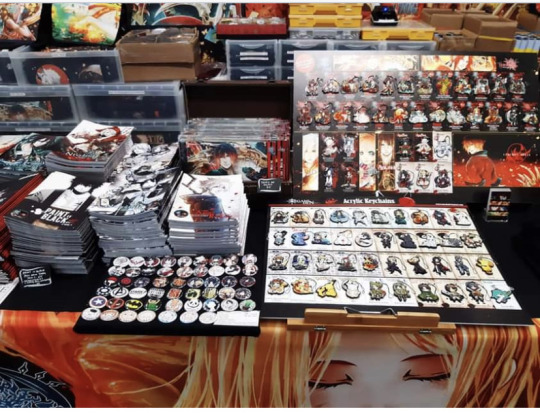
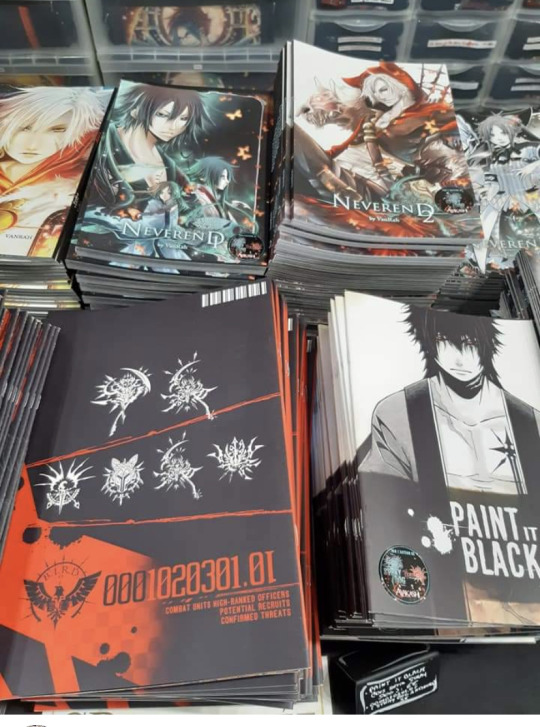

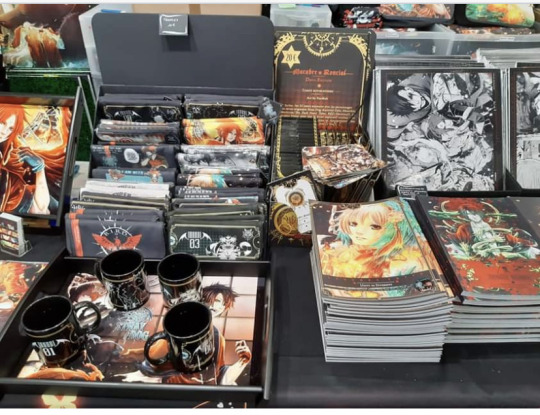
NeverenD volumes 1-5, RED, PAINT IT BLACK, Karnival Gate, Sweet Dreams Artbook, Living Poison Artbook, Unity in Diversity Artbook, Stray Dog H.S Archives 0001020301.01 , GONE - Trailer, ROTG, bags, cups, Tarot Cards, pins and Acrylic Keychains
Art, characters and Tegami Den belongs to VanRah/poizongirl @poizongirl
⚠️Vanrah Facebook ⚠️
https://m.facebook.com/photo.php?fbid=435061108632450&set=pb.100063856931822.-2207520000..&type=3
#vanrah#van rah#poizongirl#@poizongirl#neverend#NeverenD#neverenD#RED#paint it black#karnival gate#Living poison#Sweet Dreams#Unity in Diversity#artbook#Stray Dog H.S Archives 0001020301.01#GONE - Trailer#ROTG#tegami den#vanrah facebook#permission#credits
2 notes
·
View notes
Text
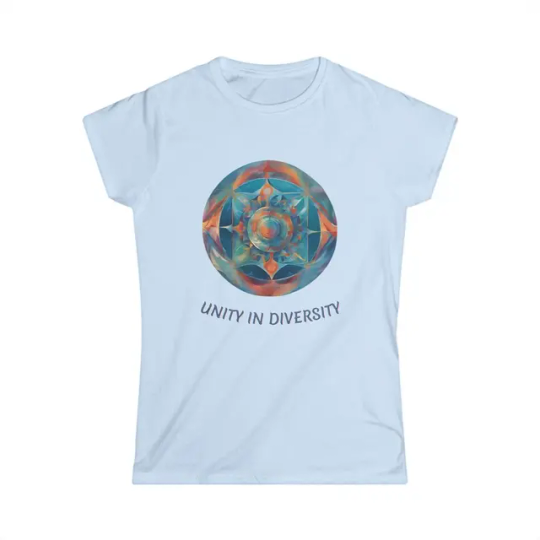
#Women's#Abstract#Design#Tee#Unity in Diversity#Diversity#Harmony#Inclusivity#Soft#Breathable#Comfort#Style#Equality
0 notes
Text
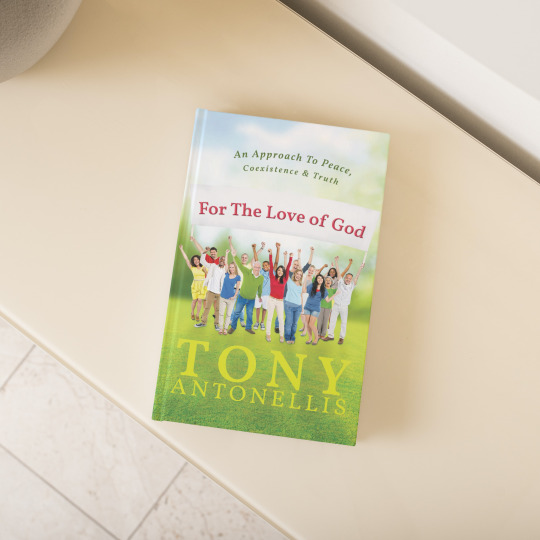
For the Love of God by Tony Antonellis
In a world where differences often create divisions, "For the Love of God: An Approach to Peace, Coexistence & Truth" by Tony Antonellis advocates for dialogue and connection through a profound exploration of various religions. Antonellis' concept of "God-centeredness" invites us to embrace our shared humanity beyond religious boundaries, fostering a space for understanding and harmony in our diverse world.
Explore the unity within diversity. Grab a copy at www.tonyantonellis.com.
#Tony Antonellis#For the Love of God#Read ersMagnet#Unity in Diversity#Spiritual Books#Godcenteredness#Embrace Huumanity#Coexistence
1 note
·
View note
Text
Ignite Change: Becoming a Citizen of the World
I am not an Athenian, nor a Greek, but a citizen of the world. -Socrates
#cosmopolitanism #oneworld #UnityInDiversity #bettertogether #worldcitizen #Nimixo #motivationalquotes #MotivationBlowByBlow #motivationsaturday
#cosmopolitan#one world#unity in diversity#better together#world citizen#motivating quotes#motivation
0 notes
Text
Unity in Diversity — The Festivals of India
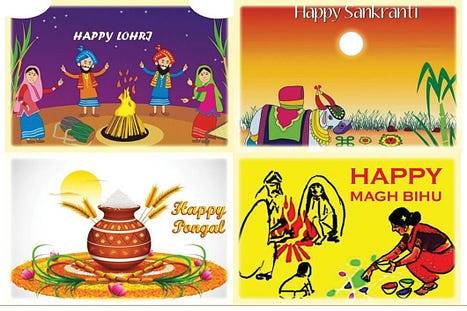
India, a nation renowned for its colourful cultural mosaic, has numerous holidays that highlight the nation’s variety and togetherness. The first month of the year, January, sets the tone for a joyful trip through a variety of celebrations that highlight the harmonious fusion of customs, faiths, and communities. In every corner of the country, these festivals are celebrated with harmony and togetherness. January has the most vibrant celebrations.
Pongal — The Harvest Festival:
Pongal, a four-day harvest celebration mostly observed in South India, particularly Tamil Nadu, marks the beginning of January. Pongal represents an appreciation for the natural world, and every day has its special meaning. Pongal celebrations hold great significance for Tamilians. The locals truly believe that this month, which is recognised as Thai Month, helps them overcome their problems and ushers in positive changes in their lives. Turmeric, sugarcane, and rice are harvested during this time of year. The four-day celebration culminates with a pleasant fair to enjoy with loved ones. It starts with a tribute to Lord Indra. The perfume of freshly harvested crops wafts through houses as families join together to cook the traditional Pongal feast, indicating abundance and prosperity. Communities get together to celebrate a plentiful harvest and feel united.
Makar Sankranti — A Pan-Indian Celebration:
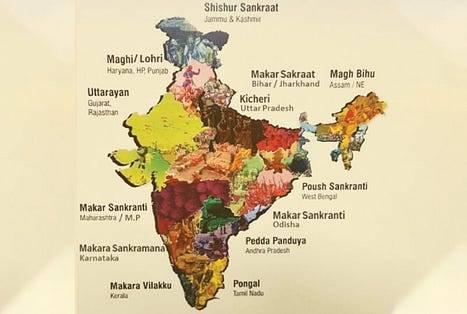
Lohri:
The joyful harvest festival of Lohri, which is mostly observed in North India, falls on January 13th. The celebration, which heralds the end of winter and the beginning of longer days, is significant culturally. According to some legends, the word “loh” refers to a large iron griddle, or tava, that is used to cook chapattis for communal feasts. Gathering around bonfires to mark the end of the winter solstice, families and communities pray for a plentiful crop. Sesame seeds, popcorn, and sugarcane are thrown into the fire as symbolic offerings and traditional folk music and dances add to the joyous atmosphere. Lohri, which celebrates the coming of prosperity and good fortune, is a perfect example of the communal spirit as people come together to eat traditional dishes like sesame seeds and jaggery sweets (rewri and gajak) and the warmth of the campfire.
Filaantro along with Child Help Foundation celebrates each of these festivals with harmony and joy. It gives the organisation the pleasure of sharing these heartwarming festivals with underprivileged children. The smiling face of the children and their families encourages the organization to strive hard for the children.
#filaantro#crowdfunding#fundraising#raise funds#charity#nonprofits#education#donate#donations#volunteering#Unity in Diversity#Festivals of India
0 notes
